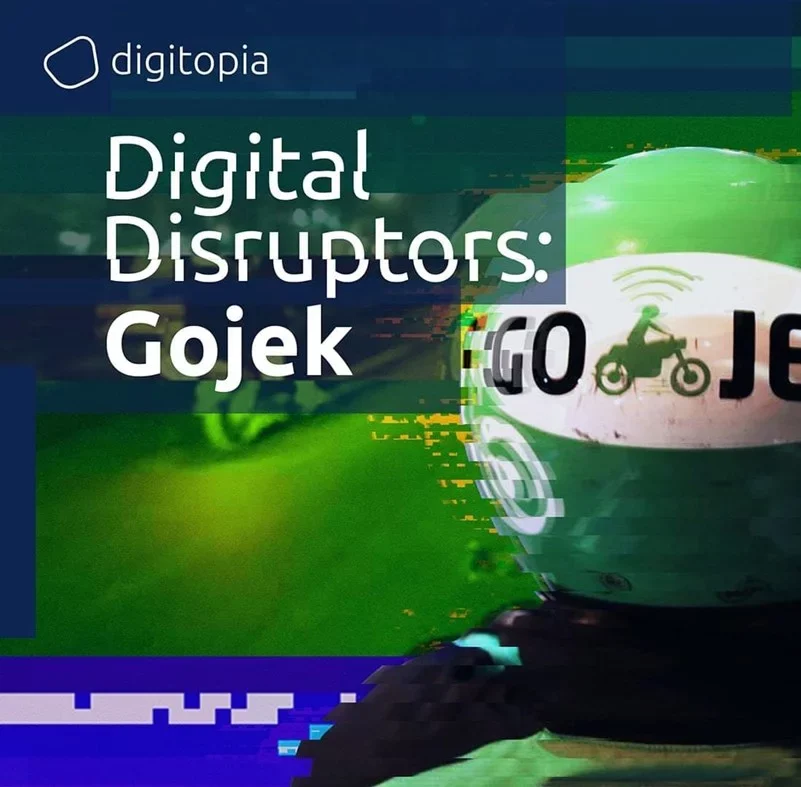
GoJek was a call centre with only 20 motorbikes when it was founded by Nadiem Makarim in 2010. Today, Indonesia’s first ever unicorn and decacorn start-up is coined as the “Southeast Asia’s first true super-app” with more than 20 services in different verticals, connecting more than 200.000 users with whatever service they need.
After its recent merger with Tokopedia, under the parent company Go To Group, Gojek strives to be the one stop shop for the whole Southeast Asia. Started as a ride-sharing and delivery service, Gojek now has investment, insurance, ticketing, on-demand messaging, payment services and more.
What’s the Big Deal?
The company’s name derives from the Indonesian word “ojek”, which means motorcycle taxi. These taxis are seen as the most convenient transportation method in Jakarta given the traffic congestions. Gojek has set the vision to solve the country’s critical problems using technology, starting from transportation.
The company then expanded to different verticals, taking the customer problems at heart to deliver the best possible solution out there. The mantra of delivering value to the customers led the company to expand to not only different industries but also different countries with different needs. Complementing the customer centric approach of data-driven decision making, Gojek seems like it found the winning recipe to become a super-app.
The Core Disruption
When we say customer centric, Gojek is at another level as everything including the brand name, service design, pricing, user experience is open to change when the company is expanding to another market. The company has dedicated teams for expansion that needs to “craft a unique market-led strategy.” For example, for the new businesses in Vietnam and Thailand, the leadership let the local teams choose whether to go with the parent company’s name.
Moreover, the company radiates the entrepreneurial spirit with all relevant stakeholders on the platform. From the drivers to vendors, Gojek considers everyone as entrepreneurs and creates initiatives to empower them, aiming to contribute to 5-10% of Indonesia’s GDP in the upcoming years. The company hopes to train 35,000 small business people this year in basic finance, management and marketing skills.
Gojek is not shy of trying out new ideas and co-create with its business partners to deliver value. The company partnered with Bibit and GoInvestasi and invested in PasarPolis to become a one-stop shop for financial services too. Recently, the company has acquired a point-of-sale system provider to expand to the B2B field.
All of the decisions above are powered by data and analytics. Every change in the platform is tested and monitored closely to create an interface and services that personally “speak” to the customers. The robust coding and the powerful database of Gojek enables the company to deliver smoothless experiences with tangible value.
The Digital Superpowers
Design: Even though it’s a super app with 20+ services in one platform, customer reviews indicate that Gojek is intuitive, easy to use and not cluttered.
Connectivity: The team tracks driver location data to monitor and improve the effectiveness of their allocation system. By mapping the geo-locations of bookings, they can identify problem areas with low conversion or allocation.
Speed: According to HBS, real-time driver allocation and route optimization allowed the company to scale 6600x in three years.
Intelligence: Local expansion teams blend the previous learnings and analytics output with the qualitative local information to create the best go-to market strategy.
Lessons Learned
Internalize your target customer’s problems and aspire to deliver the best value. Gojek knows what it’s target customer wants and needs through its analytical capabilities and creates the right resources, both internally and externally, to become the leader provider in the vertical. Then, the company leverages its brand value, ecosystem and the platform to dive into the adjacent markets.

